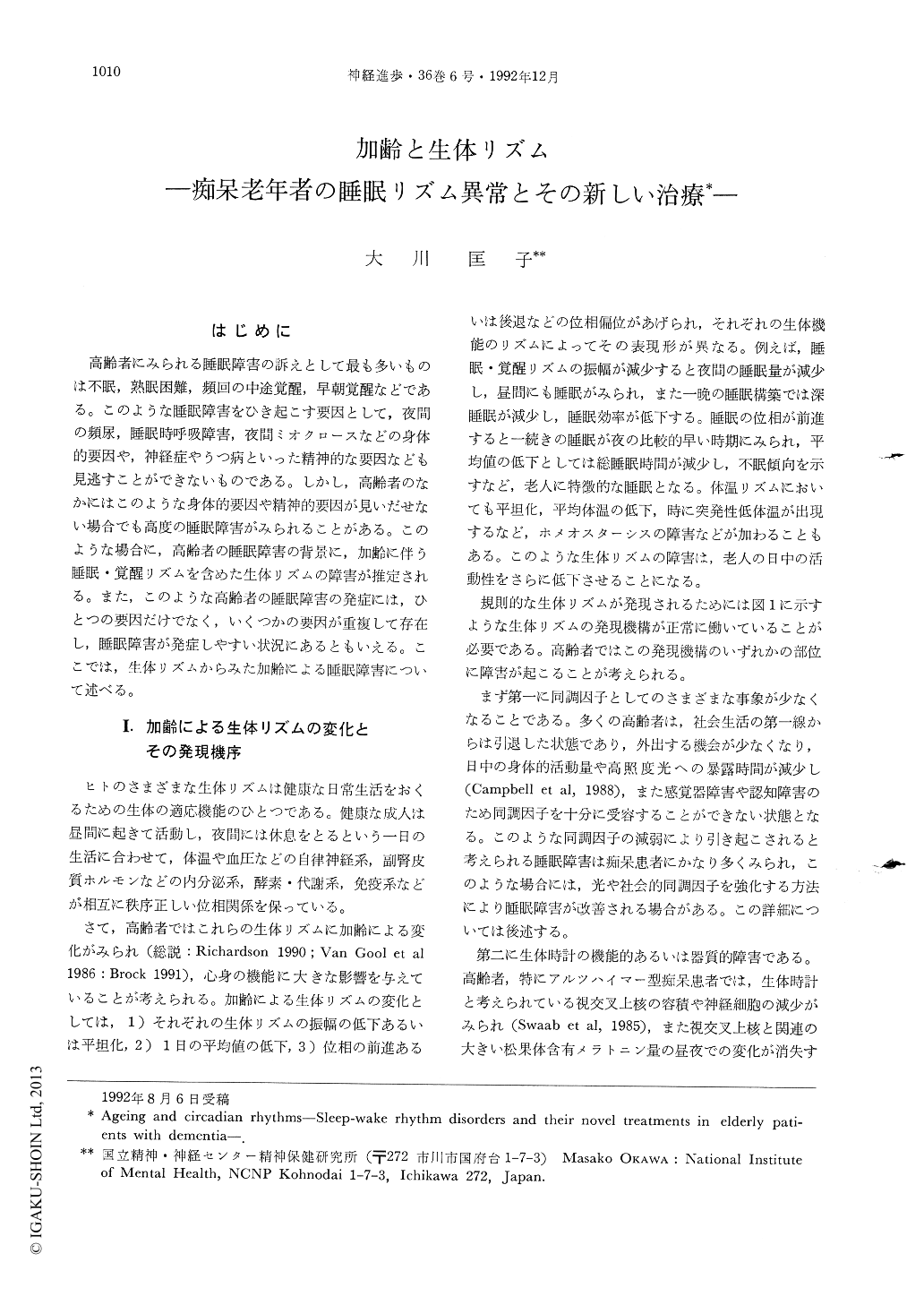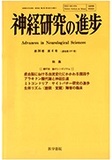Japanese
English
- 有料閲覧
- Abstract 文献概要
- 1ページ目 Look Inside
- サイト内被引用 Cited by
はじめに
高齢者にみられる睡眠障害の訴えとして最も多いものは不眠,熟眠困難,頻回の中途覚醒,早朝覚醒などである。このような睡眠障害をひき起こす要因として,夜間の頻尿,睡眠時呼吸障害,夜間ミオクロースなどの身体的要因や,神経症やうつ病といった精神的な要因なども見逃すことができないものである。しかし,高齢者のなかにはこのような身体的要因や精神的要因が見いだせない場合でも高度の睡眠障害がみられることがある。このような場合に,高齢者の睡眠障害の背景に,加齢に伴う睡眠・覚醒リズムを含めた生体リズムの障害が推定される。また,このような高齢者の睡眠障害の発症には,ひとつの要因だけでなく,いくつかの要因が重複して存在し,睡眠障害が発症しやすい状況にあるともいえる。ここでは,生体リズムからみた加齢による睡眠障害について述べる。
Elderly patients with dementia often suffer from disorders of the sleep-wake rhythm such as revers-ed day-night rhythm, insomnia or irregular sleep-wake rhythm and behavioral disorders such as wan-dering, aggressiveness, agitation or night delirium. They present numerous safety problems and are a constant challenge to all who care for them. In this study, we presented a biological background of their circadian rhythm disorder and a successful treatment based on chronobiological principles.
Twenty-five patients admitted to a geriatric mental hospital were studied for sleep-wake rhythm disorder and treatments. Two criteria were used to select the subjects: 1) They were selected because they exhibited irregularity of their sleep-wake rhythm with behavioral disorders and/or delirium. 2) They did not exhibit sleep disorders due to sleep apnea, nocturnal myoclonus or other physical diseases which often cause sleep disorders in the elderly.

Copyright © 1992, Igaku-Shoin Ltd. All rights reserved.


